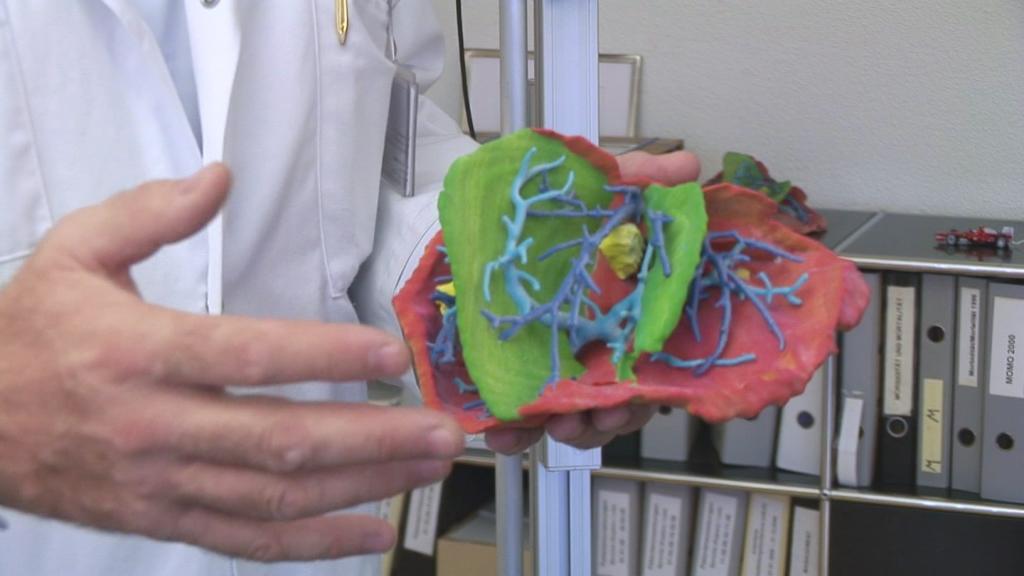“Western” diseases spread to developing world

Chronic diseases such as diabetes and cancer are on the rise worldwide - especially in developing countries, experts say.
Delegates at the Swiss Public Health Conference 2011 at Basel University have been hearing how environmental and lifestyle factors are big contributors to the problem – as is increasing urbanisation.
The two-day meeting, entitled “Chronic Diseases – A Major Challenge” and gathering Swiss and international specialists in the field, has been considering the impact of non-communicable diseases (NCDs) – as opposed to infectious ones – in particular.
According to the World Health Organization, which released a report on the issue earlier this year, the four main NCDs – cardiovascular disease, cancer, chronic lung diseases and diabetes – kill three in five people worldwide.
In Switzerland alone four per cent of the population now have diabetes mellitus and cancer is now the most common cause of death among 45-64 year olds, according to conference figures.
Lifestyle, cities
These illnesses are on the rise worldwide because the population is ageing, said Nino Künzli, deputy director of the Swiss Tropical and Public Health Institute, which along with the Swiss Society for Public Health organised the meeting.
Lifestyle and environmental factors, many of which could be changed, also contribute, such as lack of physical activity or smoking, he added.
Urbanisation – it is estimated that around half of the world’s population now lives in cities – is not helping, added Ursel Broesskamp-Stone, head of international affairs at the Health Promotion Switzerland foundation and a podium speaker at the conference.
“Many quarters in cities are constructed in a way that’s not health supportive, be it because of pollution, noise or lack of space for physical activities,” she told swissinfo.ch. With a little judicial town planning, such as for reducing traffic, the situation can be eased, she added.
“Western” diseases
A worrying development for many experts is what is happening in low- and middle-income countries.
“In our mind we always think non-communicable diseases are typical for developed and richer countries,” said Martin Dahinden, director of the Swiss Agency for Development and Cooperation, who was a keynote speaker on Thursday.
“What we discover now is that it is an enormous and growing problem in poor counties and among poor populations,” he told swissinfo.ch.
For example, in some areas in African regions south of the Sahara, around 16 per cent of the population suffer from diabetes.
“Western” habits and increased urbanisation are partly to blame, as is lack of access to proper treatments. This rise places a bigger burden on already pressured health systems and also delivers what the WHO terms a “two-punch blow” to development: massive losses of national income and increased poverty.
Dahinden said it was very important to have prevention schemes in the long-term. “Something that was very present in the statements at the conference was that you cannot limit the issue alone to a specific disease, it’s multi-sectorial: changes in nutrition, peoples’ habits and air quality all play a role. We need a much broader look.”
This means no special fund as with HIV/Aids, he added, because the whole health system needs to be strengthened.
International agenda
Delegates said that, above all, political will was needed. There was much excitement that the issue had at last reached the international agenda: not only has there been the WHO report but the UN will hold a high-level meeting on NCDs at its General Assembly in New York in September – the first of its kind.
Swiss President Micheline Calmy-Rey will lead the Swiss delegation.
Broesskamp-Stone said that, in addition, collaboration with the private sector should also be considered, even if some people were not sure about the ethics of that collaboration.
She argued that big transnational companies were simply shaping our lives too much in terms of eating, moving and transporting things for them not to be players in prevention work.
“There is a huge challenge but also a huge opportunity for the better if we find new approaches to work with big influential companies, without giving up the ethics, turning them towards more corporate social responsibility for our wellbeing and health,” she said.
Tumours are the second cause of death in Switzerland.
30% of men and 23% of women die of cancer-related deaths.
In total 16,000 people die of cancer every year, according to the Federal Statistics Office.
Breast cancer is the most common form in women and colon cancer is in the top three for both men and women.
Non-communicable diseases (NCDs): diseases that are not infectious and of long duration and with a slow progression.
Chronic diseases: NCDs plus for example HIV/Aids which are caused by an infectious agent but due to improved treatments is now considered a chronic disease.
The Swiss Public Health Conference 2011 was held at Basel University from August 25-26. The title: “Chronic Diseases – a Global Challenge”.
More than 350 specialists were in attendance from Switzerland and all over the world.
A public podium discussion “Healthy cities, a contradiction?” was being held on August 26 at Basel University. Broesskamp-Stone was one of the speakers.

In compliance with the JTI standards
More: SWI swissinfo.ch certified by the Journalism Trust Initiative





You can find an overview of ongoing debates with our journalists here. Please join us!
If you want to start a conversation about a topic raised in this article or want to report factual errors, email us at english@swissinfo.ch.